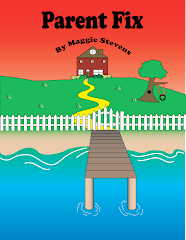Do you remember when your mom and dad warned you to stay away from certain kids? And then maybe pushed you to make friends with others? Now that you are a parent I’ll bet you find yourself doing that same thing--mostly without success.
Between the ages of 5 and 12, making friends is one of the most important missions of childhood - a social skill that will endure throughout their lives. Developmentally, school-age children are ready to form more complex relationships. They become increasingly able to communicate both their feelings and their ideas. At this age they are no longer so bound to the family or so concerned mostly about themselves. Friends are important because they share with one another the pleasures and frustrations of childhood.
Choosing friends
A number of factors can come into play as your youngster selects his friends. If he feels good about himself, and if he has been loved and respected within the family, he is more likely to make good choices of friends. If you and your spouse relate to each other well, and if your child has caring and supportive relationships with his brothers and sisters, he will have seen and experienced positive examples of how people can relate, and he will carry these impressions over into his own friendships, including the friends he chooses. On the other hand, if those family experiences have not been supportive and confidence-boosting, he is likely to seek out peers who have similar types of troubles. Make sure your home environment is healthy.
There is a reason children choose the friends they do. As a parent, it is helpful to be aware of what these reasons are and why your child chooses them. Sometimes they pick friends who have personality traits they desire. For example:
Personality Trait Why This is Enticing
Fun Seekers---------Use it to improve their happiness level
Popular----------------Raise their own status with others
Gregarious------------Help them to lose their own shyness
Smart-------------------Makes them feel smarter or help with their grades
Funny-------------------Others want to be around or make them laugh
Cute older brother---Date to the prom
Negative influence---Rebel against their parents
Once you understand why your child has chosen a particular friend, take some time to help your child understand why he has chosen a particular friend. This is will also give you an opportunity to discuss his own values, feelings, and behaviors.
Healthy friendships
A healthy friendship is one in which both children are on an equal footing. Neither child should dominate the other to make all the decisions on what activities to pursue. They should share and make an effort to please each other.
Negative peer influences
Dealing with negative peer influences is a challenge, but there are solutions. Some parents may demand that their own youngster stop spending time with this "bad influence," but this is not the best strategy. Your kids have to find out for themselves who their true friends are and who are people that are using them or just passing through their lives. If you interfere too often, you’ll lose the ability to guide them and you’ll likely make it harder for them to make critical decisions that they need to as they’ll be rebelling against you when choosing their friends rather than using their own judgment.
At the same time, do not hesitate to express your displeasure over the less desirable playmates. Speak calmly and rationally when you explain why you would prefer that your child not spend too much time with them. Let him know the natural consequences if he ends up adopting the unacceptable behavior that you have seen in these other children, while still not absolutely forbidding the friendship. This approach will teach your youngster to think more logically and assume responsibility of his actions, and show that you trust his growing capacity to make the right decisions.
Encourage Self Expression
You want your child to enjoy healthy friendships, but you also want her to have a mind of her own. Teach your child that sometimes friends can disagree, or have different interests, beliefs, or tastes in clothing, music, and hobbies. Encourage her to seek her own path, and give her the confidence to say "no" to a friend whose trying to lead her down the wrong path.
Your child’s preoccupation with people and events outside the family is natural and you should respect her boundaries, but it is imperative to remain actively involved in your child's life. Too often, peers end up filling the vacuum left by parents who are overly critical or largely absent.
So what is a parents role? Stay involved, but remember: You would never want your child to choose your friends, so do not attempt to pick the people your child will associate with.
Tuesday, October 4, 2011
Subscribe to:
Post Comments (Atom)





No comments:
Post a Comment